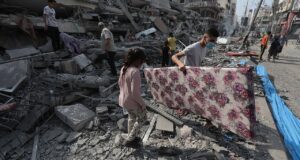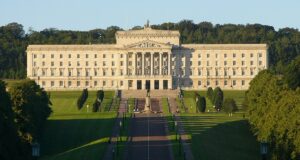By Simon Schofield – Senior Fellow
20th July 2013
We were wrong about Saddam Hussein. By ‘we’ I don’t mean the international intelligence community and I don’t mean the governments of the Coalition of the Willing. I mean the public and the media who, to this day, believe and say that what was found in Iraq after the fall of Saddam’s Baathist regime showed Saddam was not a threat to the international society.
This was a myth. Such a myth, in fact, that it might as well have been reported that Saddam’s middle name was Theseus.
Firstly, there were considerable stockpiles of chemical weapons found. A 2006 news report detailed that in the period 2003-2006 over 500 chemical weapons were discovered. Whilst these were degraded, it is important to note that they were present and still likely harmful, even if not fully deployable. The fact that these were retained past their degradation period suggests either that the Iraqi regime was not aware that the weapons had degraded or that they wished to retain them in any event. If the Iraqi regime was not aware of the condition of their stockpiles then it suggests that they believed they were in possession of WMD and were willing to deploy them as they did in Halabja. If they were aware then they wished the rest of the world to believe that they had WMD, either to use coercively against neighbours or to deter Western powers from intervening against such aggression.
Secondly, and even more horrifying than the chemical weapons, was the discovery of critical components for a nuclear weapons programme, dug up in an Iraqi scientist’s garden in 2003. These, whilst not a ‘smoking gun’ indicated the existence of a nuclear bomb, reveals an intention to conceal the programme from inspectors, in order to reconstitute it once investigative eyes were occupied elsewhere in the world. Imagine what the Middle East could look like today had Saddam’s Iraq survived and carried out its programme undetected. We could well be on the verge of a world with a nuclear Iraq and a nuclear Iran, as well as a nuclear Israel in the most unstable times in the most unstable region in the world. The ensuing tension, nuclear arms races and international discord this could well have sown puts even the present situation in the Middle East in the shade with respect to the potential for human suffering and insecurity brought about.
Thirdly, whilst alternative futures are difficult to debate with absolute clarity, how might the Arab Spring have played out with an unchecked Saddam in Iraq? What might have happened in the Syrian civil war playing out at present? The chances are Iran and Iraq would have fought a proxy war against one another by supporting the Shiah group Hezbollah and the Sunni al Qaeda affiliates respectively. This situation would likely lead to each side being better armed and better supported than they are at present, since neither side is particularly careful about collateral damage. This could even light the touch paper for a second Iran-Iraq war, with both states armed with WMD this would be a chilling prospect.
Saddam Hussein, to the surprise of the entire international intelligence community, did not possess usable weapons of mass destruction, this much is true. But to have allowed this to develop into the myth that Saddam Hussein was not a threat to the international community and an innocent victim is a great failure on the part of pro-intervention academics and activists the world over and it is a myth that should always be challenged wherever it is uttered. Saddam was no Theseus, but he certainly was a minotaur.
 Human Security Centre Human Rights and International Security Research
Human Security Centre Human Rights and International Security Research



